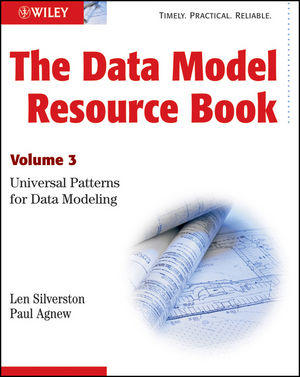The Data Model Resource Book: Volume 3: Universal Patterns for Data Modeling
January 2009, Paperback

This third volume of the best-selling Data Model Resource Book series revolutionizes the data modeling discipline by answering the question "How can you save significant time while improving the quality of any type of data modeling effort?" In contrast to the first two volumes, this new volume focuses on the fundamental, underlying patterns that affect over 50 percent of most data modeling efforts. These patterns can be used to considerably reduce modeling time and cost, to jump-start data modeling efforts, as standards and guidelines to increase data model consistency and quality, and as an objective source against which an enterprise can evaluate data models.
For each pattern, numerous alternatives are provided ranging from very specific to very generalized ways of modeling, pointing out the pros and cons and providing guidelines to help modelers make appropriate decisions under different circumstances. In developing and documenting these patterns, Len Silverston and Paul Agnew have provided an invaluable set of foundational tools for anyone involved in data modeling from the novice to the guru. The authors show you how to:
View Errata and Updates for The Data Model Resource Book, Volume 3: Universal Patterns for Data Modeling
